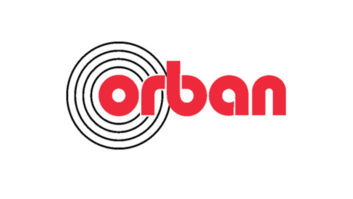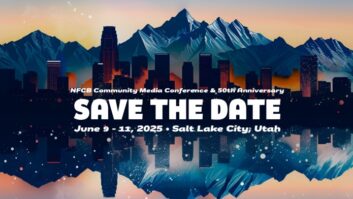Internews is a non-profit organization with a mission to “empower local media worldwide to provide people with news and information and the means to make their voices heard.” The association has been operating globally for more than 30 years and today is working in Democratic Republic of Congo, Kenya, Somalia, South Sudan, Central African Republic, Liberia, Cote d’Ivoire, Burkina Faso and Tanzania. Radio World spoke to Brice Rambaud, regional director, Sub-Saharan Africa at Internews about the impact of radio in these countries.

Sailors departing for the city of Kouango in the Central African Republic, a town affected by 2016’s Cholera outbreak.
Credit: Internews
Radio World: What does Internews’ work entail? And what is its mission?
Brice Rambaud: Internews provides training and support to citizens and media professionals producing original, high-quality programming and develop special global programs for coverage of social and governance issues such as elections, human rights, environmental crises, humanitarian crises.
In addition, we ensure people’s access to information through whatever technological means they choose. We are doing this particularly in refugee camps where refugee have huge needs for practical information; advancing the adoption and implementation of fair media laws and policies and building skills in media and business management to support sustainable media outlets.
RW: How do you see radio and its role in helping marginalized communities in Africa and around the world?
Rambaud: Radio is the most popular and most accessible medium in Africa. At least every household has access to radio. Community radio stations broadcasting in local languages have the power to inform their communities in a language they understand, give them information on key issues such as local governance, agriculture, health, etc. They also represent a critical space for discussion and dialogue among the community and with local leaders. They connect marginalized communities with the broader nation and state representatives.
RW: Can you provide examples of how the medium is playing an essential part in improving people’s lives?
Rambaud: Media disseminating health information that is crucial to their audience have huge impact. We have seen that vaccine campaigns in the media have led to a near elimination of polio, that information on HIV testing has reduced stigma and increased access to treatment, and that better reporting on malaria has improved malaria prevention methods. Health reporting on community radio and national media has improved health governance accountability.
We believe that information saves lives. This is especially true in refugee camps where information is scarce and there are so many questions — where to find food and water? How to register? Who are the hosts? These are questions that every refugee asks: we create humanitarian information services such as radio stations to answer these questions and give people “news they can use.”
Another example was after the earthquake in Haiti in January 2010. Just days after the tragedy, Internews put in place a Haitian media support unit with a daily 15–20 minute radio program called “Enfomasyon Nou Dwe Konnen” (“News You Can Use”). ENDK was pre-recorded and then sent to radio stations from the metropolitan area. We helped people with this showand reunited families.

The distribution of radio equipment to boat captains in Central African Republic.
Credit: Internews
RW: Can you explain more about the project you are working on in Central African Republic?
Rambaud: Central African Republic officially was in the midst of a cholera epidemic in 2016. Most affected areas were along Oubangui river and 19 deceased were reported due to the epidemic.
We decided to have a rapid response media action to counter the spread of the epidemic. Internews worked with national and community radio stations to strengthen the health information environment and provide crucial information to those affected by the Cholera epidemic in most affected zones along Oubangui River. We provided communities exposed to and affected by the recent Cholera epidemic, with a wide range of life-saving health information through radio in order to reduce mortality and halt the spread of the disease across the country.
The three-month project increased the quality and quantity of informative and engaging cholera related media content available to Central African Citizens. Internews put in place structures within traditional media to promote informed citizen dialogue on health, water, sanitation and hygiene and find alternative ways to disseminate the same information to citizens living in remote areas, such as disseminating content through motorbikes or boats.
The most famous story of this project is of course the dissemination of cholera related information by boat along the Oubangui river. Our local partner, the Network of Journalists for Human Rights (RJDH) produced a special radio show, “Honka Cholera” (“Go Away Cholera”) to inform listeners on how to protect themselves and stem the spread of the disease.
The fight against cholera requires the dissemination of timely and accurate information, including health advice to avoid cholera: basic hygiene, food and clean water consumption. Honka Cholera also explained what to do if citizens see the symptoms of cholera in someone. Because some affected areas were so remote and citizens were so difficult to reach, we decided to air Honka Cholera on the pirogues along the Oubangui river — these boats are very often used by people. We did the same with the motor-taxis. We wanted to pass crucial information to target people where they are! In a way we succeeded because the spread reduced as a result of our efforts and efforts of other health NGOs in the region.
RW: What are the obstacles for broadcast medium in developing regions?
Rambaud: The costs of running a radio station are quite high, mainly due to the lack of electricity. They have to operate through fuel generators and this can be extremely expensive. There is also a big problem of sustainability because it’s difficult to find sources of income at the grassroots level in Africa.
RW: How can broadcast media ensure social development for local populations?
Rambaud: This could be the topic of a PhD dissertation. Media has such a huge role to play at all level of development:
● Education on key issues
● Dissemination of national and community information
● Local governance accountability
● Media is a business in itself, and promotes other businesses
RW: How do you see modern technology (e.g. social media) influencing radio’s impact on societies in developing worlds?
Rambaud: Social media is increasingly popular especially among the youth. Radio and social media, for instance Facebook and WhatsApp, can complement each other quite well in developing countries, enabling people to react to key discussion topics in real time, and disseminating news very quickly.
Radio and social media are not competitors in Africa — they complement each other. They are both working well with the very African ethos of community belonging.







